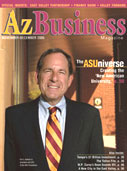
Accidents Caused by Government Agencies
Watch Web Video News Report
- Personal Injury Resources:
- General Info
- |
- FAQ
- |
- Video
FAQs
FAQ: Learn More: Plaintiff's Personal Injury Law
Personal injury actions require, by their very nature, that someone be injured. The requisite injury can either by physical or, in some cases, emotional. The general goal of personal injury actions is to place the blame for the injury on the party who caused it and to require them to compensate the injured person for the losses sustained.
Not every injured plaintiff is entitled to recover damages for the injury he or she has sustained. Besides an injury, the plaintiff must establish, through evidence, that the defendant is legally liable for his or her injuries. This requires proof of causation both in terms of actual, factual causation and legal causation. Whether legal causation is established depends on the facts and circumstances of the particular matter in question. The defendant can be held liable as a result of either the actions he or she took, or the actions he or she had a duty and failed to take.
Some personal injury actions revolve around intentional conduct, which means that if an individual intentionally harms another, or knows that the conduct he or she is engaged in has a substantial likelihood of harm, he or she may be liable for the resulting harm. Other personal injury actions are based on negligence. Under a negligence theory, an individual is liable for the injuries caused by his or her own actions, or inaction. Still other types of personal injury actions are based on strict liability, a no-fault system where liability may attach regardless of the fault of the various parties, including the plaintiff.
In some situations, the defendant's conduct, while questionable, does not rise to a level that entitles the plaintiff to a recovery. For example, if a plaintiff knowingly and willfully chooses to encounter a known hazard, the law holds that he or she has "assumed the risk of injury" and therefore the defendant is not liable. Plaintiffs are denied recovery in other cases if their subjective belief about a situation does not match an objective "reasonable person" standard.
Personal injury law can involve many different types of claims, theories and principles. Some of the more common types of personal injury actions include:
Animal bites can result in the animal owner's liability to the person who is bitten or who is injured while trying to avoid a bite.
Assault and battery are two intentional torts that involve improper contact with another, without permission or consent or the threat of such contact.
Aviation accidents often result in serious injury or death.
Defamation and privacy are two separate areas that concern the rights of individuals to have their names and reputations protected, and also to have their privacy preserved.
Motor vehicle accidents raise numerous questions as to the liability of one participant to another and also raise interesting questions regarding who should be responsible for covering the losses.
Premises liability concerns the responsibilities of owners of property to safeguard others from dangerous conditions or hazards on their property and to prevent others from being injured while on their property.
Property damage causes of action concern the rights of owners of property to protect their property from damage, theft or intrusion.
Railroad accidents may result in personal injury or death and may subject the railroad to liability.
Slip and fall cases relate closely to the duty of an owner or possessor of land to maintain their property in a safe manner for the benefit of others lawfully entering upon the land.
Wrongful death actions may be brought by the dependents or beneficiaries of a deceased individual against the party whose action or inaction caused the death of their loved one.
Copyright © 1994-2009 FindLaw, a Thomson business
DISCLAIMER: This site and any information contained herein is intended for informational purposes only and should not be construed as legal advice. Seek competent legal counsel for advice on any legal matter.
Law Offices of Shane L. Harward PLC
Phoenix Personal Injury Attorney
Arizona Wrongful Death
Lawyer
10575 North 114th Street, Suite 103
Scottsdale, Arizona 85259
Phone: 480-874-2918
Facsimile: 480-588-5063
Email

10575 North 114th Street
Suite 103
Scottsdale, Arizona 85259
Telephone 480-874-2918
Facsimile 480-588-5063
By Appointment Only:
4809 East Thistle Landing Drive
Suite 100
Phoenix, Arizona 85044
Telephone 602-384-4638
Mailing Address:
Post Office Box 12877
Scottsdale, Arizona 85267
Email
Law Offices of Shane L. Harward PLC Disclaimer Site Map
The Arizona personal injury, accident, and insurance bad faith dispute lawyers at the Law Offices of Shane L. Harward PLC represent insurance, personal injury and accident victims throughout the state of Arizona (AZ) including, but not limited to, Phoenix, Scottsdale, Mesa, Tempe, Chandler, Glendale, Gilbert, Sun West, Sun City, Tucson, Flagstaff, Kingman, Bullhead City, Yuma, Lake Havasu, Fountain Hills, Anthem, Ahwatukee, Carefree, Cave Creek, Gold Canyon, Bisbee, Sierra Vista, Cochise, Paradise Valley, East Valley, Maricopa, Pima, Pinal, Gila, White Mountain, Heber, Payson, Prescott, Forest Lakes, Apache Junction, Avondale, Queen Creek, Benson, Black Canyon City, New River, Buckeye, Casa Grande, Coolidge, Cottonwood, Douglas, Florence, Gila Bend, Goodyear, Greer, Glendale, Lakeside, Guadalupe, Holbrook, Huachuca City, Oro Valley, Overgaard, Avra Valley, Parker, Peoria, Pinetop, Pine, Prescott Valley, Quartzite, Strawberry, Safford, Show Low, Sun City West, Sun Lakes, Superior, Surprise, Snowflake, Tombstone, Wickenburg, Winslow, Wilcox, Williams, Young, Youngtown, and surrounding areas.

